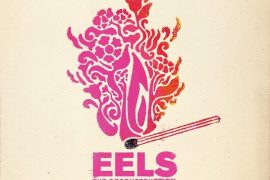 Frankenstein or, The Modern Prometheus
Frankenstein or, The Modern Prometheus
LETTER I
To Mrs. Saville, England
ST. PETERSBURGH, 11th, 17—.
YOU WILL REJOICE to hear that no disaster has accompanied the commencement of an enterprise which you have regarded with such evil forebodings. I arrived here yesterday; and my first task is to assure my dear sister of my welfare, and increasing confidence in the success of my undertaking.
I am already far north of London; and as I walk in the streets of Petersburgh, I feel a cold northern breeze play upon my cheeks, which braces my nerves, and fills me with delight. Do you understand this feeling? This breeze, which has travelled from the regions towards which I am advancing, gives me a foretaste of those icy climes. Inspirited by this wind of promise, my day dreams become more fervent and vivid. I try in vain to be persuaded that the pole is the seat of frost and desolation; it ever presents itself to my imagination as the region of beauty and delight. There, Margaret, the sun is forever visible, its broad disk just skirting the horizon, and diffusing a perpetual splendour. There—for with your leave, my sister, I will put some trust in preceding navigators—there snow and frost are banished; and, sailing over a calm sea, we may be wafted to a land surpassing in wonders and in beauty every region hitherto discovered on the habitable globe. Its productions and features may be without example, as the phenomena of the heavenly bodies undoubtedly are in those undiscovered solitudes. What may not be expected in a country of eternal light? I may there discover the wondrous power which attracts the needle; and may regulate a thousand celestial observations that require only this voyage to render their seeming eccentricities consistent for ever. I shall satiate my ardent curiosity with the sight of a part of the world never before visited, and may tread a land never before imprinted by the foot of man. These are my enticements, and they are sufficient to conquer all fear of danger or death, and to induce me to commence this laborious voyage with the joy a child feels when he embarks in a little boat, with his holiday mates, on an expedition of discovery up his native river. But, supposing all these conjectures to be false, you cannot contest the inestimable benefit which I shall confer on all mankind, to the last generation, by discovering a passage near the pole to those countries, to reach which at present so many months are requisite; or by ascertaining the secret of the magnet, which, if at all possible, can only be effected by an undertaking such as mine.
These reflections have dispelled the agitation with which I began my letter, and I feel my heart glow with an enthusiasm which elevates me to heaven; for nothing contributes so much to tranquillise the mind as a steady purpose— a point on which the soul may fix its intellectual eye. This expedition has been the favourite dream of my early years. I have read with ardour the accounts of the various voyages which have been made in the prospect of arriving at the North Pacific Ocean through the seas which surround the pole. You may remember that a history of all the voyages made for purposes of discovery composed the whole of our good Uncle Thomas’s library. My education was neglected, yet I was passionately fond of reading. These volumes were my study day and night, and my familiarity with them increased that regret which I had felt, as a child, on learning that my father’s dying injunction had forbidden my uncle to allow me to embark in a seafaring life.
These visions faded when I perused, for the first time, those poets whose effusions entranced my soul and lifted it to heaven. I also became a poet, and for one year lived in a Paradise of my own creation; I imagined that I also might obtain a niche in the temple where the names of Homer and Shakespeare are consecrated. You are well acquainted with my failure, and how heavily I bore the disappointment. But just at that time I inherited the fortune of my cousin, and my thoughts were turned into the channel of their earlier bent.
Six years have passed since I resolved on my present undertaking. I can, even now, remember the hour from which I dedicated myself to this great enterprise. I commenced by inuring my body to hardship. I accompanied the whale-fishers on several expeditions to the North Sea; I voluntarily endured cold, famine, thirst, and want of sleep; I often worked harder than the common sailors during the day and devoted my nights to the study of mathematics, the theory of medicine, and those branches of physical science from which a naval adventurer might derive the greatest practical advantage. Twice I actually hired myself as an under-mate in a Greenland whaler, and acquitted myself to admiration. I must own I felt a little proud when my captain offered me the second dignity in the vessel, and entreated me to remain with the greatest earnestness; so valuable did he consider my services.
And now, dear Margaret, do I not deserve to accomplish some great purpose? My life might have been passed in ease and luxury; but I preferred glory to every enticement that wealth placed in my path. Oh, that some encouraging voice would answer in the affirmative! My courage and my resolution is firm; but my hopes fluctuate, and my spirits are often depressed. I am about to proceed on a long and difficult voyage, the emergencies of which will demand all my fortitude: I am required not only to raise the spirits of others, but sometimes to sustain my own, when theirs are failing.
This is the most favourable period for travelling in Russia. They fly quickly over the snow in their sledges; the motion is pleasant, and, in my opinion, far more agreeable than that of an English stage-coach. The cold is not excessive, if you are wrapped in furs—a dress which I have already adopted; for there is a great difference between walking the deck and remaining seated motionless for hours, when no exercise prevents the blood from actually freezing in your veins. I have no ambition to lose my life on the post-road between St. Petersburgh and Archangel.
I shall depart for the latter town in a fortnight or three weeks; and my intention is to hire a ship there, which can easily be done by paying the insurance for the owner, and to engage as many sailors as I think necessary among those who are accustomed to the whale-fishing. I do not intend to sail until the month of June; and when shall I return? Ah, dear sister, how can I answer this question? If I succeed, many, many months, perhaps years, will pass before you and I may meet. If I fail, you will see me again soon, or never.
Farewell, my dear, excellent Margaret. Heaven shower down blessings on you, and save me, that I may again and again testify my gratitude for all your love and kindness.—Your affectionate brother,
WALTON.
Tant qu’à jouer la carte culturelle et méta comme Matt Berninger, le chanteur de The National, on vous propose de relire POUR DE VRAI les deux premières pages de Frankenstein (la 1ère lettre de l’explorateur Walton), pour vous donner du courage. Comme d’autres, on s’est interrogés dès 2019 pour tenter de comprendre comment The National était devenu un groupe aussi chiant.
Si le groupe continue de porter sur lui ce qui composait le coeur de notre critique à charge d’alors, l’omniprésence des chansons midtempo, des paroles qui ressemblent à des tentatives romanesques étudiantes sur l’amour, la dépression et les états d’âme du quadra blanc occidental et bourgeois, et on en passe, I Am Easy To Find restait un très bon disque de rock indé, ample, élégant et puissant. Le problème est qu’on pense exactement la même chose de First Two Pages of Frankenstein au point de ne pas même chercher à le réexprimer :
I Am Easy To Find n’est pas la déception annoncée. Two First Pages of Frankenstein est la réponse imposante et à rallonge d’un groupe qui pousse sa maturité et sa soif d’avancer dans ses (derniers) retranchements. Le groupe a réussi à remplacer l’énergie des débuts par un mécanisme d’intellectualisation de sa manière de composer qui le préserve de l’assèchement et nous offre une poignée de titres admirables. L’ensemble n’en reste pas moins trop conceptuel pour faire de cet album un album complètement attachant ou marquant. The National ne peut plus faire mouche que par instants. Mais ces instants là valent largement le déplacement. Comme souvent en matière de pop, on peut trouver du plaisir dans l’exercice de la fidélité. On peut trouver un intérêt à s’ennuyer un brin avec de vieux amis, en sachant qu’il y aura toujours un moment qui nous rappellera ce qu’on a vécu ensemble.
La prétention de se citer soi-même ne nous épargne pas mais The National est encore plus intelligent que nous. La production est ennuyeuse et mainstream au possible. Le casting d’invités, prestigieux, n’apporte finalement pas grand-chose aux morceaux qu’ils viennent enrichir. Sufjan Stevens fait l’appoint harmonique au troisième arrière-plan et Phoebe Bridgers, x2, joue les utilités sur le rasoir This Isn’t Helping et la balade malade Your Mind Is Not Your Friend, comme si elle n’avait pas pu décrocher un vrai duo avec son collègue de chez Netflix. La collaboration la plus médiatique est celle de Taylor Swift sur The Ascott, une embarrassante balade sur une rencontre post-séparation pleine d’autodépréciation, qui est aussi belle que prévisible et ennuyeuse.
Est-ce à dire qu’on n’aime pas ce disque ? Même pas. Ce serait trop simple. The National est un groupe taillé pour qu’on l’aime : indé jusqu’au bout des cils, intello et digne, snob et hanté par les fantômes de la dépression, du couple qui s’enlise dans la lassitude et le désamour, un groupe conscient de sa chance et de sa culpabilité de classe. On ne peut pas balayer la parfaite adéquation sociologique (et donc artistique) de The National et de l’écriture de Berninger à nos besoins primaires. Once Upon A Poolside a beau être lent comme un Derrick de début d’aprem, Eucalyptus un exercice de style vain et répétitif et Ice Machines une tentative poétique baudelairienne si stéréotypée, qu’on ne peut pas tout à fait s’emballer mais First Two Pages Of Frankenstein est partout ailleurs fait pour nous et notre plaisir. On aimerait chanter comme Berninger avec cette belle voix chaude de baryton. On aimerait se souvenir de cette fille blonde superbe qui traînait chez nous à demie nue, après l’amour, dans un tee-shirt de New Order. On aimerait entonner l’excellent Tropic Morning News comme si on était nous-même un mélange de Tom Cruise et Nicole Kidman dans Eyes Wide Shut ou des personnages tirés d’un roman de Jonathan Franzen. The National rend le bourgeois et l’intellectuel meilleurs et plus intéressants qu’ils ne le sont en réalité. On aimerait aller au bout de nos tendances dépressives plutôt que de résister pour aller au travail tous les jours. The National nous renvoie une image rêvée de notre existence, triste et tragique mais ABSOLUMENT élégante, qui en fait un groupe proche de nous. La vie n’a rien de shakespearien et pas grand chose de Mary Shelley il faut l’avouer.
First Two Pages Of Frankenstein est une foutue bulle artistique comme il existe des bulles spéculatives. On a l’impression qu’on va pouvoir s’y lover indéfiniment et s’y plaindre à l’abri du monde réel mais elle gonfle, elle gonfle au point de nous éjecter. C’est un disque confortable, splendide et presque inspiré par intermittence mais un truc qui aurait tout aussi pu être créé spécialement pour nous par une IA complaisante et ayant identifié ce qui flattait notre petite vanité. The National a perdu le sens du combat, le sens de la colère et le sens des rythmiques. The National a perdu le sens de la déraison et de l’outrance. Il a perdu le rock comme on perd le Nord. C’est aujourd’hui son handicap majeur comme celui de l’époque : le groupe refuse le rock et la violence. Il fait juste semblant d’être ce qu’il a été et le fait à la perfection.
Moralité : il vaut mieux écouter le disque sans la ramener. Il y a 1001 mauvaises raisons de l’adorer.
02. Eucalyptus
03. New Order T Shirt
04. This Isn’t Helping (feat. Phoebe Bridgers)
05. Tropic Morning News
06. Alien
07. The Alcott (feat. Taylor Swift)
08. Grease In Your Hair
09. Ice Machines
10. Your Mind Is Not Your Friend (feat. Phoebe Bridgers)
11. Send For Me
Lire aussi :
The National / Laugh Track












